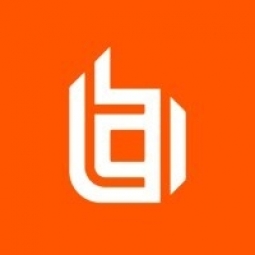公司规模
Large Corporate
国家
- Worldwide
- United Kingdom
产品
- Bomgar Remote Support
技术栈
- Remote IT Support
- Multi-language Support
实施规模
- Enterprise-wide Deployment
影响指标
- Productivity Improvements
- Customer Satisfaction
技术
- 应用基础设施与中间件 - API 集成与管理
适用行业
- 电子产品
- 医疗保健和医院
适用功能
- 商业运营
用例
- 远程资产管理
- 远程协作
服务
- 系统集成
- 软件设计与工程服务
关于客户
Smiths Group PLC is a world leader in the practical application of advanced technologies, delivering products and services for a number of markets worldwide, including threat and contraband detection, medical devices, energy, communications and engineered components. With 23,000 employees in 400 locations around the globe, Smiths Group’s products and services make the world safer, healthier and more productive.
挑战
Prior to 2009, Smiths Group operated under a decentralized IT model, with each of its divisions having their own CIO and managing their own IT independently from the rest of the company. Recently, the company made the strategic decision to consolidate its IT functions, bringing its divisional resources together into one global team. As part of this restructuring, Smiths Group needed a way to centralize its user support processes, which had previously been handled regionally with a multitude of different help desk systems. The company desired a solution that enabled support technicians to control remote computers and provide support to more than 14,000 internal users. There were also strict requirements for security. As a result, Smiths Group’s goal was to find a multi-language, centralized and highly secure remote IT support solution.
解决方案
Smiths Group chose Bomgar's remote IT support solution for its multi-language capabilities, high security, and ease of use. The company also preferred Bomgar’s approach to licensing: a shared, concurrent user license, versus a named license. That provides a needed flexibility that matches well with Smiths Group’s around-the-clock operation. The implementation of Bomgar's solution was straightforward and easy, from the trial process to roll-out of the tool to the IT support analysts.
运营影响
数量效益

Case Study missing?
Start adding your own!
Register with your work email and create a new case study profile for your business.
相关案例.

Case Study
Remote Temperature Monitoring of Perishable Goods Saves Money
RMONI was facing temperature monitoring challenges in a cold chain business. A cold chain must be established and maintained to ensure goods have been properly refrigerated during every step of the process, making temperature monitoring a critical business function. Manual registration practice can be very costly, labor intensive and prone to mistakes.

Case Study
Hospital Inventory Management
The hospital supply chain team is responsible for ensuring that the right medical supplies are readily available to clinicians when and where needed, and to do so in the most efficient manner possible. However, many of the systems and processes in use at the cancer center for supply chain management were not best suited to support these goals. Barcoding technology, a commonly used method for inventory management of medical supplies, is labor intensive, time consuming, does not provide real-time visibility into inventory levels and can be prone to error. Consequently, the lack of accurate and real-time visibility into inventory levels across multiple supply rooms in multiple hospital facilities creates additional inefficiency in the system causing over-ordering, hoarding, and wasted supplies. Other sources of waste and cost were also identified as candidates for improvement. Existing systems and processes did not provide adequate security for high-cost inventory within the hospital, which was another driver of cost. A lack of visibility into expiration dates for supplies resulted in supplies being wasted due to past expiry dates. Storage of supplies was also a key consideration given the location of the cancer center’s facilities in a dense urban setting, where space is always at a premium. In order to address the challenges outlined above, the hospital sought a solution that would provide real-time inventory information with high levels of accuracy, reduce the level of manual effort required and enable data driven decision making to ensure that the right supplies were readily available to clinicians in the right location at the right time.

Case Study
Gas Pipeline Monitoring System for Hospitals
This system integrator focuses on providing centralized gas pipeline monitoring systems for hospitals. The service they provide makes it possible for hospitals to reduce both maintenance and labor costs. Since hospitals may not have an existing network suitable for this type of system, GPRS communication provides an easy and ready-to-use solution for remote, distributed monitoring systems System Requirements - GPRS communication - Seamless connection with SCADA software - Simple, front-end control capability - Expandable I/O channels - Combine AI, DI, and DO channels

Case Study
Driving Digital Transformations for Vitro Diagnostic Medical Devices
Diagnostic devices play a vital role in helping to improve healthcare delivery. In fact, an estimated 60 percent of the world’s medical decisions are made with support from in vitrodiagnostics (IVD) solutions, such as those provided by Roche Diagnostics, an industry leader. As the demand for medical diagnostic services grows rapidly in hospitals and clinics across China, so does the market for IVD solutions. In addition, the typically high cost of these diagnostic devices means that comprehensive post-sales services are needed. Wanteed to improve three portions of thr IVD:1. Remotely monitor and manage IVD devices as fixed assets.2. Optimizing device availability with predictive maintenance.3. Recommending the best IVD solution for a customer’s needs.









